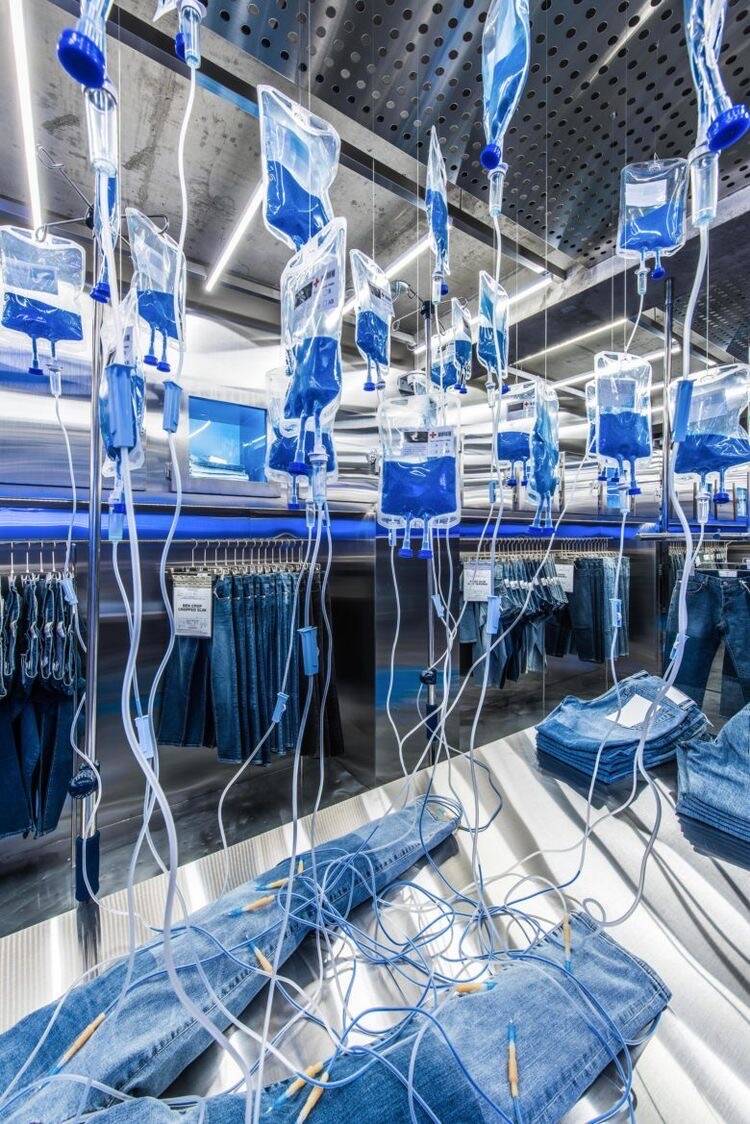
The economic benefits of unpaid internships are obvious. Employers are hungry for cheap labour.
There is no doubt that "free" is the cheapest. Employees are just as keen on anything that is free. It is just as well that some students and recent graduates are willing to work without pay. However, such behaviour is highly unjustifiable on ethical grounds.
If unpaid internships are about getting a better job and a higher salary in the future, have we thought about the millions of students whose families are at the bottom of the social ladder who can't afford unpaid internships?
Recently I have been asking friends around me about their experiences and views on unpaid internships. Their first response was that they were all against unpaid internships. And just a short while later, everyone was left resistant to unpaid internships.
So to sum up, the biggest point of going to school is to be able to afford to work without pay.
I think it's also important to take a comprehensive look at what this unpaid workforce (which probably also stems from the upper classes) means for society as a whole. Especially in companies where there is a high overall demand, there is always a small slice of time and resources that comes from those who are expected to join them. A typical example of this phenomenon in state-run businesses is the fact that employment opportunities for deputies in a legislative body are often offered to "volunteers" who work hard, toil and compete to the end of the unit. (which in fact lasted only a few years)
This creates a situation where, with all the positions available, the salaries of many people of the right age can be cut down effortlessly. And some of them are fatherless (or some rich donors)
Fig.1 Naprasno (2020) By Mitchmoonde
All that is needed is some subsistence allowance for those who want to gain the rich and unpaid experience that would make them a good image for a congressman or senator. Not only does this make long-term and organisational sense; but this deep-rooted culture of privilege has taken hold throughout Washington State, where there is a lack of foresight in approaching many of the simpler issues, not only among federal law enforcement officers themselves, but also among some middle-class Americans who make up a larger proportion of the nation's citizens. And the advisers and assistants who work for them get the job on their own "merits" because they are lucky enough to have been born into one of the few economically affluent families. This creates an unbalanced and cyclical problem between the real world economic realities that the United States faces and the legal academy in Washington. It is up to us to understand and then find appropriate solutions to these intractable problems.
"Stop unpaid internships"
This trend of 'unpaid internships' cannot be allowed to continue because it is unethical.
Not only are tuition fees ridiculously expensive these days, but do many students simply not have the means to afford a summer holiday in a small area? In the broadcasting industry, for example, interns are mostly concentrated in a few areas - New York, Atlanta and Los Angeles. The cost of moving here coupled with unpaid work is hitting thousands of low-income students who simply want a secure future after graduation.
They just want a job with a secure future after graduation. Yet some newspapers have the audacity to judge why this cohort of graduates is always unimpressive. I spent a summer as an intern in a clinical trial. It was really interesting, but most people don't have the kind of adventurous spirit that likes to have people inject drugs into them.
Some concept companies think it's ridiculous to get social experience this way. Imagine a friend paying tens of thousands of pounds to take a PS or web design course at school, when employers could easily get these skills for free. If companies could teach students to use PS then I think there might be some value in that. But the fact is that interns have to have these skills before they can work. So what is the point of learning these skills when they don't yield any benefit?
What exactly is the point of these? In addition, companies need to pay employees for their technical skills to work for them. However, students not only have to earn credits for their internships and pay rent, they also have to pay for their skills to work for free.
This is completely unreasonable.
In economics, people value what they pay for. It's similar to a company's financial investment in a person, in which they prefer to get the full amount back.
This is why it is so difficult to fulfil the promises that companies can make to interns. Companies have no real interest in individual interns or their professional development. However, if they are willing to pay the intern, they can do so. In a corporate environment, the intern takes all the risks, while the employer's are the opposite.

Fig2. home to an innovative denim store design named 'The LAB101 Denim Store ' (2019) at Mapo-gu, Seoul Korea
Unpaid interns are "the lowest paid"
My experience has shown that they are devaluing actual workers as a whole, not just interns, but everyone is paid less. In addition, interns commonly start their careers as a draftsman, but are already very sick of this legitimate career route by the time they graduate high school.
Unpaid internships are a new type of entry-level position
If interns continue to use their valuable skills to work for people without pay, then I can guarantee that they won't learn anything during their unpaid internship. But for the most part, people just seem to be looking for interns who are well trained and experienced. When the recession hits employment then the salaries paid for the previous full year are shifted to the unpaid interns to cushion those funds. "I went looking for a job during the recession and saw job ads on websites that were all over the place. For example, the requirements for an art intern: a master's degree, at least five years' experience and professional arc welding in a workshop; must be skilled in sandpaper and drilling techniques and know the crochet process; please bring a CV with details of the companies you have worked for; must have contact details for Gallery.com and Artworld etc. "The internship is for a period of six months to one year, but is unpaid.
We should document these phenomena, whether it's established advertising, well-trained artists, or too much wishful thinking like Craigslist -... but things don't always work out the way they should in the end, and we work for people who like to 'hire' interns. We work for people who like to "hire" interns, and often they have very little chance of success, and some of them don't even achieve as much as I do. Even at the end of the day, it is only an unpaid job for any intern because the person who hired them is not making any money. So there are very few people who want to work for them unpaid, and the main reason why there are interns who want to do something is because they want to put something on their CV to show that they have 'done something'.
I've been to Smith College, at least when I was there, and they had a programme called 'Practicum' which gave each student a one-off grant of £2,000 to compensate them for a summer of unpaid work while they were at university.
That was just the beginning. I know it's implementing some concrete measures to address the issue raised here: that young people on low incomes simply can't afford unpaid internships and are missing out on some key stepping stones.
In general, in my experience, legal guidelines for "internships" like this are a joke. This is definitely an employer of free labour and I hope the trend is towards decline rather than more formalisation.
How can one be so positive about free internships?
In fact, I had a heated argument with a senior executive at my former company about this issue. My former boss (the president of the organisation) imagined himself as a progressive. So, when we hired summer interns
I argued strongly that they should be paid a reasonable hourly rate so that students who were working unpaid and without parental support could more readily accept the internship. However, my suggestion was immediately rebuffed. And its not because we don't have enough budget! At £10-£15 per hour, that's a pittance for a company. Than to pay an intern £15 per hour for a 3 month internship, working 20 hours a week. Even just the price of a business jet ticket to China for me was more than this small salary.
But not the boss, who is more interested in getting good interns from his aristocratic alma mater without spending a penny. Their claim to be up to date is pure nonsense...

"Unpaid internships = crime."
In July 2023, I'll have graduated from Nottingham Trent University with a BA in International and Area Studies. Obviously, if I wanted to do a job related to my major, I would have to leave Nottingham. I started looking at various internships in London as a sort of 'first step'. I looked at lots and lots of information, but I noticed that none of them were paid internships. This put a lot of pressure on my life.
Is there anyone out there like me who is from the small town of Nottingham and how do I cope with the stress of living in London? The average monthly rent here is even more than my parents' monthly house payment. And it doesn't pay anything? I don't come from a family of well-off interns and it makes me feel very ashamed when I ask if they pay even £15. I have had 2 jobs at university, product sales and print modelling, amongst many other things.
Fig3. Project-Touring Exhibition (2001) By Weiße Rose
There was no choice but to use my mum and dad's savings which I probably had to use and a lot of people come through the same way. It's really some pretty common problems. I'm sorry, but all these kids in London not worrying about money and getting an internship at the end of it all just seems so unfair to me. Being from a small town, like me, how do you get a chance to get out of here when there's really no way to afford anything?
How do you get a chance to get out of this without really having any means to afford anything?
I like the freedom to pursue the career I want. And an internship is a great way to achieve this. But it's still very impractical to work for an equal and good organisation, and unpaid internships inevitably reinforce the socio-economic divide. No one would believe that there could be equal opportunities in such a system.
List Of Illustrations
Fig.1. Naprasno (2020) By Mitchmoonde [Online].Available at:https://naprasno.tumblr.com/post/69585761828/boris-bidjan-saberi
Fig.2. Home to an innovative denim store design named 'The LAB101 Denim Store ' (2019) at Mapo-gu, Seoul Korea [Online].Available at:https://www.trendhunter.com/trends/denim-store-design
Fig.3. The Project- Touring Exhibition (2001) By Weiße Rose, constructiv CLIC as exhibition-system [Online].Available at:https://www.architonic.com/en/product/burkhardt-leitner-constructiv-clic/1014717
Add comment
Comments